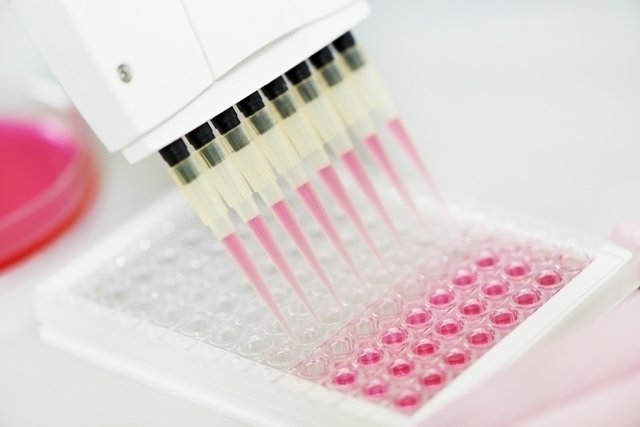HBsAg is the test carried out to diagnose hepatitis B and is carried out by collecting a small blood sample in which the presence or absence of a protein present on the surface of the hepatitis B virus is checked in the bloodstream.
The HBsAg test is normally requested together with the anti-HBs test, which is the test that checks whether the person has immunity against the virus through vaccination or cure of the disease.
The test is normally indicated during prenatal care, as there is a risk of transmitting the hepatitis B virus to the baby if the pregnant woman is not treated and has an active infection, but it can also be indicated when risk behaviors for infection are identified. , such as unprotected sexual intercourse, sharing syringes and contact with blood and secretions from infected people. Learn more about hepatitis B.

What is it for
The HBsAg test serves to confirm or rule out infection with the hepatitis B virus, even when there are no signs or symptoms indicative of the disease. Therefore, the test is indicated in situations that increase the risk of infection by the virus, such as:
- Direct contact with blood and secretions of a person infected with the virus;
- Unprotected sexual intercourse;
- Sharing of personal hygiene objects, such as shaving and/or waxing blades;
- Use of manicure or pedicure devices that have not been properly sterilized;
- Sharing syringes for applying drugs directly into veins;
- Shared use of acupuncture needles;
- Use of non-sterile material for tattoos and piercings.
Furthermore, testing for hepatitis B is part of prenatal exams, as the hepatitis B virus can be transmitted to the baby during pregnancy, at birth or through breast milk. See which exams are part of prenatal care.
Do you have questions about your exam results?
It is not necessary to carry out any preparation for the HBsAg test, it is only recommended that the person goes to the laboratory to collect a small blood sample, which is sent for analysis.
What does the result mean
The test result varies according to the presence or absence of antigens indicative of the presence of the virus:
- Reagentwhen the presence of the hepatitis B virus antigen is verified, which is suggestive of recent or chronic infection;
- Non-reactivewhen the presence of antigens is not verified.
It is important that the result of the HBsAg test is interpreted together with the result of the anti-HBs test, as this makes it possible to check whether the infection is active, that is, whether the virus is circulating in the blood, and thus initiate the most appropriate treatment. . See how to understand the results of the anti-HBs test.
Bibliography
- MINISTRY OF HEALTH. Technical manual for the diagnosis of viral hepatitis. 2018. Available at: <https://qualitr.paginas.ufsc.br/files/2018/08/manual_tecnico_hepatites_08_2018_web.pdf>. Accessed on October 13, 2023

Sign up for our newsletter and stay up to date with exclusive news
that can transform your routine!
Warning: Undefined array key "title" in /home/storelat/public_html/wp-content/plugins/link-whisper-premium/templates/frontend/related-posts.php on line 12
Warning: Undefined array key "title_tag" in /home/storelat/public_html/wp-content/plugins/link-whisper-premium/templates/frontend/related-posts.php on line 13



